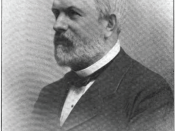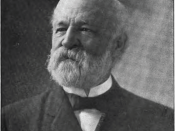Kidder, Peabody & Co.
Group Project
Who is to blame for the downfall of Kidder Peabody & Company?
Arguments for guilt and innocence:
-- Joseph Jett -
Guilty
Did not reveal the accounting glitch to his superiors and took advantage of the system deficiency
Continually entered a new forward recon so the loss would not be calculated and recorded thus knowingly hiding the daily loses
If Jett did not knowingly commit fraud and acted within KP guidelines, that does not exonerate him from guilt. He was tasked with generating profits while acting within the framework of the financial regulatory environment. Instead, whether it was with intent or out of ignorance, Jett acted irresponsibly and should carry some blame for the firm closing and 2,000 people losing their jobs. Ignorance is not a valid form of defense.
Innocent
Complied with all internal controls as his transactions were not flagged by the internal accounting or auditing systems
Not deliberately trying to hide his actions as all of his trades were recorded in ledger books and open on his desk in plain view, and accessible to anyone, at any time
Results of his transactions available to his superiors in the form of daily reports but no orders were given for him to stop his current process.
If upper management did not stop this then it was assumed Jett's methods were acceptable to them
Followed the rules of the system as he did not change or alter the system in any way. The system is to blame not him
-- Melvin Mullins -
Guilty
Did not understand Jett's trading strategy but did not ask any questions or take the time to understand or verify what Jett was doing. Didn't seem to have enough industry knowledge to understand the complexities of how unrealizable profits were...


